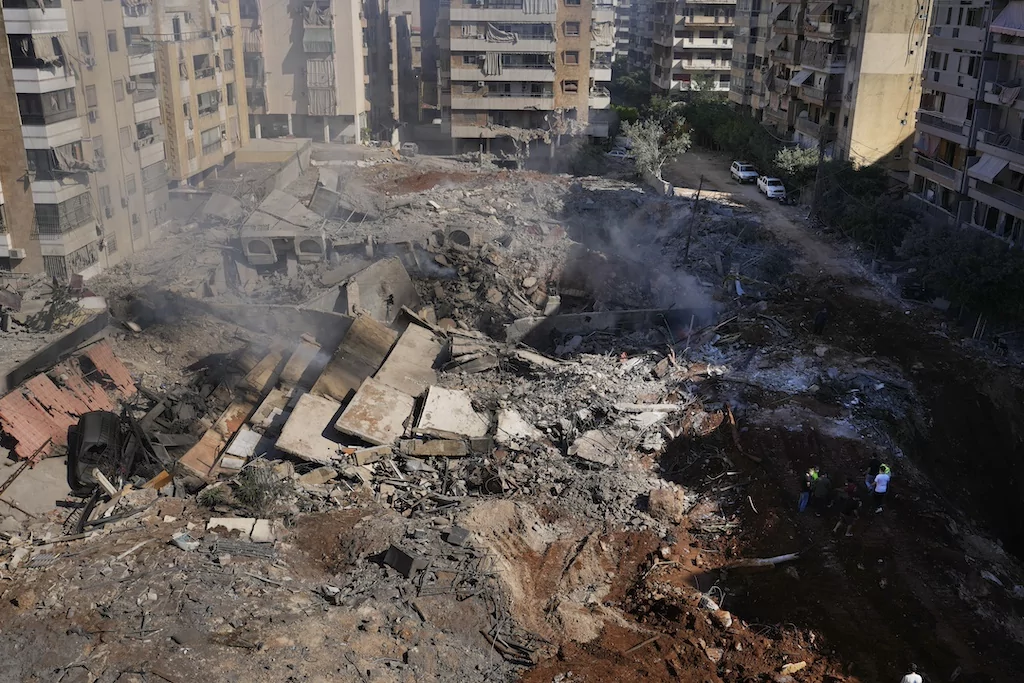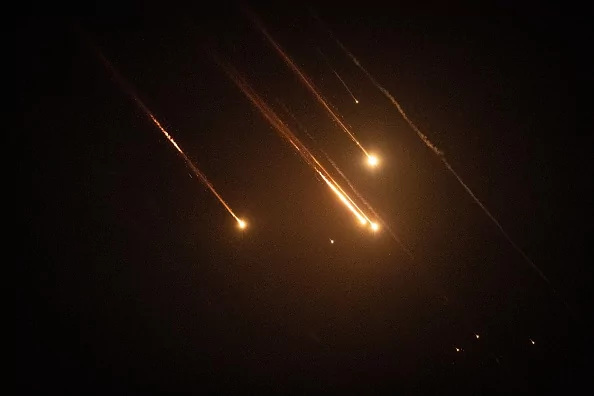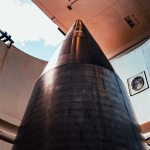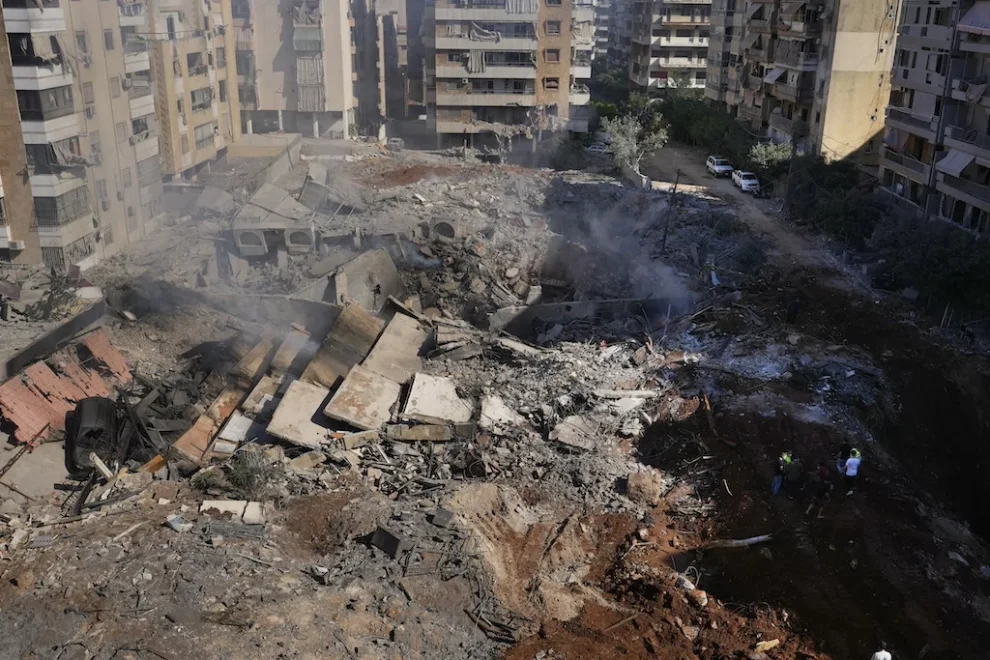On Oct. 7, 2023, Hamas terrorists killed 1,200 Israelis in a terrorist attack the likes of which the country had never seen. Since then, Israel has been determined to eradicate Hamas from Gaza while fending back attacks from Iran and its proxies. The aftermath of the attack has strained relations between the United States and Israel, while the Democratic Party at home threatens to be torn apart by anti-Israeli activists, both within Congress and playing out on campuses across the country. This Washington Examiner series will take a closer look at all of these issues with far-reaching consequences. Click here to read Part 1 and Part 2.
Israeli leaders vowed to “obliterate” Hamas in the aftermath of the Oct. 7 terrorist attack. But a year later, the group is still hanging on, refusing to engage in ceasefire talks, and the Israeli military has been dragged into wars on several fronts.
The attack, Hamas’s killing of roughly 1,200 people and kidnapping of about 250 others, represented the worst security failure in Israel’s history, scarred the populace, and transformed the region.
Hours after Hamas carried out the deadliest terrorist attack in Israel’s history, Israeli Prime Minister Benjamin Netanyahu declared war and vowed that Hamas would “pay an unprecedented price.”
‘We will wipe Hamas off the face of the earth’
In the aftermath of the attack, Netanyahu compared Hamas to ISIS for its barbarity, and declared, “We will crush them and destroy them as the world has destroyed” ISIS, while Defense Minister Yoav Gallant added, “We will wipe Hamas off the face of the earth.”
“We are pounding our enemies with unprecedented force, and I stress, this is only the beginning. Our enemies have only just begun to pay the price. I will not detail our plans, but I tell you, this is only the beginning,” the prime minister said one week after the attack. “We will obliterate Hamas, we will triumph. It might take time, but we will end this war stronger than ever.”
Over the last year, the Israel Defense Forces have killed more than 40,000 Palestinians, and Israeli officials acknowledge that at a minimum of half of those are civilians; destroyed infrastructure in the Gaza Strip; displaced a large majority of the population, and yet, Hamas is still able to carry out attacks against Israel.
The war was briefly paused for a week in late November when both sides agreed to what ultimately amounted to a weeklong ceasefire in which more than a hundred Israeli hostages were released in exchange for the pause of the war, the increase of international humanitarian aid, and the release of three times as many Palestinians held in Israeli detention.
The deal fell apart and consequent efforts to get a deal done have consistently failed in part because Israeli and Hamas leaders were too dug into their respective positions. Netanyahu repeatedly vowed, especially early on, that they would not end the war with Hamas still in power in Gaza.
Hamas fired rockets into Israel on Monday, the one-year anniversary of the attack. Days earlier, Israel’s military restarted operations in northern Gaza due to intelligence indicating “the presence of terrorists and terror infrastructure in the area of Jabaliya in the northern Gaza Strip, as well as efforts by Hamas to rebuild its operational capabilities in the area,” the IDF said on Telegram.
Israeli forces have killed several of Hamas’s leaders, both in Gaza and abroad, including Marwan Issa, the deputy commander in chief of the Izz al Din al Qassam Brigades, Muhammad Deif, the top military commander, and Ismail Haniyeh, the top political Hamas official based outside Gaza. Haniyeh was assassinated in Iran on July 31, in a bombing that Israel never publicly took credit for but is presumed to be responsible.
Despite killing those Hamas leaders, the group demonstrated its capabilities to still attack Israel on Monday, even though the U.S. has said Hamas is now incapable of carrying out another Oct. 7 terrorist attack.
Israeli forces initially started their ground invasion into northern Gaza, but troops have now had to return multiple times to ensure Hamas cannot reconstitute, including this past weekend most recently.
“Hamas has been hit really hard, it no longer governs Gaza. To say the obvious, it’s lost a significant number of leaders, it lost much of its military. The price has been exceptionally high and obviously there’s a huge civilian price in Gaza, devastating,” Daniel Byman, a senior fellow at the Center for Strategic and International Studies, told the Washington Examiner, adding that in his view, Israel has become “stuck in Gaza,” because “there’s no alternative to governing Gaza now.”
Hamas’s senior leader, Yahya Sinwar, is believed to still be in Gaza, hiding in the group’s underground infrastructure. Hamas’s strategy is to strategically embed itself within and underneath civilian areas to ensure that going after them would incur civilian casualties.
Bringing the hostages home
Sinwar, according to U.S. officials, is currently the main hindrance blocking a ceasefire deal between Hamas and Israel that would free the roughly 100 Israeli hostages taken on Oct. 7, 2023, and still held by Hamas in exchange for a pause in the war and a surge of desperately needed humanitarian aid. There have also been times where the Israelis have hardened their positions preventing a deal from getting across the finish line.
The negotiations have stalled in recent weeks.
Hamas is believed to still be holding roughly 100 hostages, the families of whom are desperate to see their loved ones return. Many of the hostage families have accused the Netanyahu government of prioritizing their war efforts over attempting to secure the release of the hostages.
“One side, of course, blames the other but the reality on the ground is that they’re stuck and there’s now the added distraction of an escalating and widening war in the Middle East, which diverts people’s attention to other things,” Jonathan Dekel-Chen, whose son is among the hostages, told the Washington Examiner.
Of the roughly 100 hostages, about a third of them are believed to have been killed, according to the IDF.
“We have clear evidence over the last few months that their lives are absolutely in danger, and more and more of them are being killed as these days,” he added. “Whatever Israel’s military achievements might be, and intelligence successes might be in this widening regional war, and none of them can compensate for the fact that we as a country and as a society must get these hostages home.”
Netanyahu, in remarks commemorating the anniversary, said Israeli forces will continue to fight Hamas until the hostages are returned.
“As long as our hostages are still in Gaza, we will continue to fight. We will not forsake any of them. I will not give up,” he declared. “As long as our citizens have not returned to their homes safely, we will continue to fight.”
Hezbollah ‘has tentacles that span in all continents’
In September, Israel’s military more significantly turned its attention to stopping the attacks from Hezbollah into northern Israel, which began one day after Hamas’s attack. They have begun small ground operations in southern Lebanon targeting Hezbollah’s arsenal, in addition to continuing its aerial campaign.
“Israel must also defeat Hezbollah in Lebanon, Hezbollah is the quintessential terror organization in the world today. It has tentacles that span in all continents,” Netanyahu said at the United Nations General Assembly in late September.
Israel’s quick decapitation of Hezbollah’s senior leaders, including then-Secretary General Hassan Nasrallah, compared to its ongoing efforts against Hamas, proved it had long prepared to fight Hezbollah in the north, whereas it was caught off guard by the Oct. 7 terrorist attack.
“In the wake of what was a setback on Oct. 7 through their campaign in Gaza and then most recently with these activities against Hezbollah, I think they’ve begun to really regain the initiative,” Gen. Joseph Votel, the former head of U.S. Central Command, told the Washington Examiner.

“They’ve demonstrated that some of our assumptions about Hezbollah and about Iran may not have been true because clearly Hezbollah is not deterring Israel right now,” Votel added. “I think what you’re beginning to see with Hezbollah and Hamas is at least two legs of the Iranian Axis of Resistance stool that have been broken off or severely weakened as a result of Israeli military action.”
Hezbollah began launching rockets and missiles into northern Israel on Oct. 8, 2023, and has launched more than 8,000 projectiles over the year, according to Israeli officials. Due to concerns that Hezbollah could carry out a mass cross-border raid, like Hamas, Israel evacuated more than 50,000 people from their homes, who still remain displaced.
Israeli officials said they intend to get Hezbollah to stop these attacks so that these people can return to their homes.
At the United Nations General Assembly, Netanyahu warned, “We won’t rest until our citizens can return safely to their homes. We will not accept a terror army perched on our northern border, able to perpetrate another October 7 style massacre.”
Iran pulling the strings
Over the last year, Israel has severely degraded two of Iran’s many proxy forces in the region in Hamas and Hezbollah. Other Iranian proxies, including the Houthis in Yemen and militias in Iraq and Syria, have also carried out infrequent attacks against Israel.
“One of the things that this war has really drawn out is the degree of connectivity and coordination between Iran’s different proxy and partner groups across the Middle East,” Brian Carter of the Critical Threats Project at the American Enterprise Institute told the Washington Examiner.
Iran and Israel have engaged in a covert war for several decades as enemies, but twice over the last year, Iran carried out massive rocket and missile barrages against Israel. Most recently, Iran launched about 180 ballistic missiles last week, and few casualties were reported.

Days earlier, Iranian President Masoud Pezeshkian addressed the United Nations General Assembly that Israel’s recent escalation against Hezbollah “cannot go unanswered.”
Israel is still weighing how to retaliate, which leaders have sworn to do. More hawkish Israeli officials believe now is the time to target Iran’s nuclear program and oil facilities, which Tehran would likely consider an escalatory attack worthy of a response and could devolve into an all-out war that drags other countries into the war.
President Joe Biden has said he would not support Israeli strikes on Iran’s nuclear facilities. There could be a more limited Israeli response.
After Iran carried out its first barrage attack in April, Israel conducted a targeted strike inside Iran sending a message of its capabilities to the regime.
Global Standing takes a hit
In the aftermath of the Oct. 7 attack, Israel was viewed sympathetically on the global stage, but the way its war in Gaza unfolded quickly changed minds.
Israel’s military efforts have decimated Gaza and its bombardment of the strip has caused significant death and destruction. U.S. officials, among others, quickly and repeatedly urged Israeli officials to do more to prevent civilian casualties as the death toll rose dramatically.
In May, the International Criminal Court announced its intent to seek arrest warrants for Sinwar, Dief, and Haniyeh for the Oct. 7 attack and Netanyahu and Defense Minister Yoav Gallant for the alleged starvation of civilians, willfully causing great suffering, willful killing, intentionally directing attacks against a civilian population, and extermination.
The United States and United Kingdom have come to Israel’s defense as it defended against two attacks from Iran, though their relationship with the Israeli government has strained. The U.K. announced in early September that it had suspended the export of some weapons to Israel over the concern that they could be used in Gaza in violation of international law, while the U.S. stopped one shipment of heavy bombs to Israel.
Several countries have also unilaterally recognized Palestinian statehood in response to the actions of the last year, which Israeli officials have argued is effectively rewarding terrorism.
Biden administration support has eroded over time
The U.S-Israel alliance has been strained at times over the last year despite Biden and Netanyahu’s decades-old relationship.
In the immediate aftermath of the Oct. 7 attack, Biden expressed his complete support for Israel and its right to self-defense. But that has eroded over time as Israel has continued its military operations regardless of the U.S.’s primary goal of avoiding a wider conflict.
CLICK HERE TO READ MORE FROM THE WASHINGTON EXAMINER
Biden’s own Democratic Party has split over his administration’s continue support and military aid for Israel in light of the growing civilian casualty totals in Gaza. Progressives frustrated with the president’s stance expressed their displeasure by voting “Uncommitted” instead of for him in the Democratic primary.
The number of votes the “Uncommitted Movement” received in the swing states represented a real threat to his ability to win the presidential election but he ultimately dropped out of the race. Vice President Kamala Harris has been more vocal about the plight of Palestinians but she has not differentiated how her potential administration’s policies would be different from Biden’s.
























